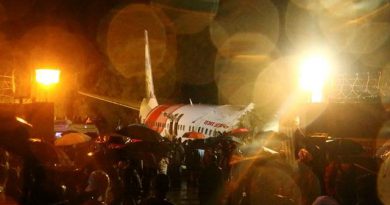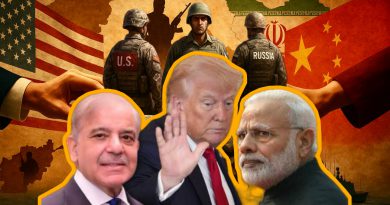Attack in Japan raises alarm about VIP security weeks before G7 summit
Tokyo (Reuters) – An explosive thrown at Japanese Prime Minister Fumio Kishida at an election rally on Saturday has raised alarming questions about the state of VIP security, less than a year after a former premier was gunned down and weeks before Japan hosts G7 leaders.
Kishida was about to speak at a by-election campaign event at a fishing harbour in Wakayama City, western Japan, when a smoking metal cylinder landed within a metre of him.
Kishida was bundled away from the partly enclosed area as police and bystanders subdued a suspect. Seconds later the small device exploded. Media said one or two people were slightly hurt.
The incident exposes vulnerabilities in Japan’s security system and a failure to institute changes following the killing of former prime minister Shinzo Abe during an election campaign last year, four experts interviewed by Reuters said.
“There is no doubt that it was a security failure because the prime minister was giving his speech at the worst possible place where he couldn’t possibly be protected,” said Mitsuru Fukuda, a Nihon University professor specialising in crisis management terrorism.
“In light of (Abe’s) shooting, police have said their security plans would be reviewed and revised, but I don’t think they are implementing any of these measures,” he said.
Abe’s killing by a man with a homemade gun sent shockwaves through Japan, where gun crime is exceedingly rare, and prompted a review of security protocols for politicians, who routinely come in close contact with the public.
‘Turning Point’
No motive is known for the Wakayama explosion but it comes at a critical time for Kishida and Japan, as hosts of Group of Seven ministerial meetings this week and a leaders’ summit in the city of Hiroshima, Kishida’s home constituency, in May.
Fukuda said for such big, international events, authorities are able to provide solid security by mobilising a huge police presence. But it is the smaller, less formal events at which vulnerabilities can be exposed.
“We are at a turning point where Japan needs to change its awareness and security system because the possibility of being targeted is increasing,” Fakuda said.
The National Police Agency had approved the security plan for the weekend rally in Wakayama, Chief Cabinet Secretary Hirokazu Matsuno said on Monday.
The government has instructed authorities to strengthen security measures and to ensure safety precautions at gatherings of VIPs, he added.
Kishida is among government officials who acknowledged flaws in security when Abe was gunned down last July. read more
In Saturday’s attack, the suspect was about 10 metres from Kishida, according to media reports.
The premier was being served a speciality seafood dish just before the attack, media reported, and news videos showed Kishida looking toward an outdoor parking area, with the crowd behind him in a roofed enclosure.
In one video, a smoking canister lands and rolls toward Kishida as shouts fill the air. A security agent blocks the device with a bulletproof briefcase kicks it away, as he and other security men crowd around Kishida and push him toward a parking area.
‘Extremely Dangerous’
After the device was thrown, a bystander grabbed a young man in a headlock, while someone who appeared to be another member of the public grabbed the suspect around the waist as police swarmed and dragged him to the ground, videos showed.
“There’s no doubt this was an extremely dangerous incident,” said Katsuhiko Ikeda, former superintendent general of the Tokyo police.
He said it showed that a review of security plans by the National Police Agency could only go so far.
“A big factor is whether the forces on the ground can make the correct decision in every eventuality, and have the proper sense of crisis,” he said.
Isao Itabashi, chief analyst at the Council for Public Policy Chief, said public appearances by top politicians should be indoors, with bag checks and metal detectors in place.
“The biggest issue here was that an explosive device made its way in,” he said. “The lessons from Abe’s incident haven’t been applied.”
Initial reports called the blast a smoke bomb, but investigations and a search of the suspect’s home indicated he had material to make pipe bombs, media reported.
One bystander, a fisherman, said the blast had injured his back, the Asahi newspaper reported. Part of the explosive device was found on a roof, 40 metres from where it went off, public broadcaster NHK reported.



